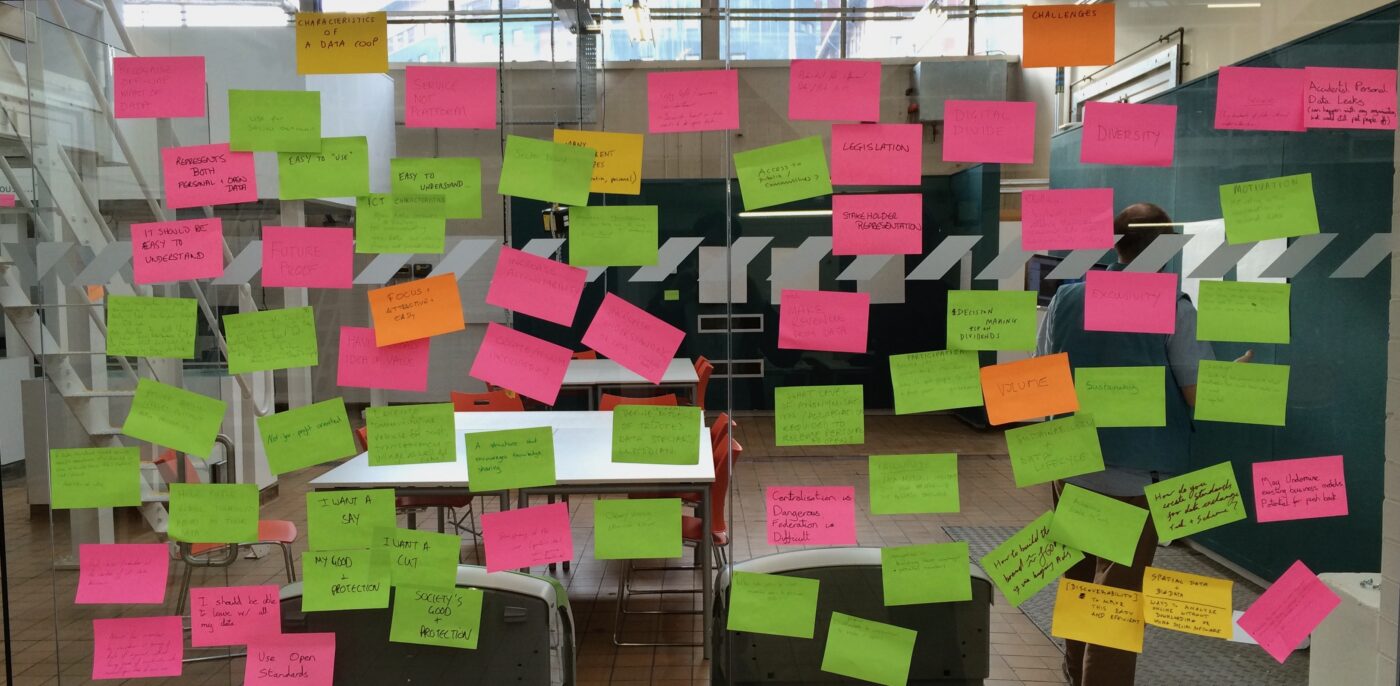Over the past few years we have been interested in how cooperative organisations can help groups of people and organisations better manage their data so that it can return value for themselves, their communities and wider society.
Misuse of data
Data has the potential to help solve some of the biggest challenges that society is facing today, but many of our digital and data enabled experiences are mediated by platforms whose primary purpose is economic. Where agency is defined within the confines of a personalised tightly defined set of criteria tailored to extract economic value from users whilst building dependency.
There is greater awareness of the power of data and how our personal data is often treated, especially by ‘big tech’ and government. Our interest was ignited In 2013 with the Edward Snowden revelations around global surveillance programmes and in the same year Google revealed its dystopian vision of wanting to “become everyone’s personal assistant – an invisible entity that knows what you want before you do.” The infamous massive-scale social contagion experiment undertaken by Facebook and Cornell University in 2014 demonstrating how Facebook could manipulate users emotions only added to the sense of urgency that something needed to be done.
Developing our data cooperative work
In 2014 we ran a series of workshops exploring if a cooperative model could be a viable tool for people to have more control over their data and pushback against these egregious and exploitative practices. This work revealed that cooperative foundational principles, despite being developed for the offline world, could be applied to a data cooperative. Given that coops were an easily understood and established concept, having been around for over a century, they provided a model that brought tried and tested processes for building trust and giving members control along with it.
Although there was a lot of interest in this work, it wasn’t until 2020 with support from the Open Data Institute that we finally got chance to design how a data cooperative would function. Through working with Carbon Coop, a Manchester-based energy services cooperative, and its members, we explored how people value data, how consent should be managed, trustworthy processes for data exchange and democratic governance. The work created a potential blueprint for the creation of data cooperatives and also revealed areas that needed more investigation, especially around balancing power relationships within a data cooperative, data reusers, scale and its relationship with trust, and sustainability.
Data Cooperative Working Group
In 2021, the Data Cooperative Working Group was formed in collaboration with India’s Aapti Institute that brought together an international group of practitioners, academics and those who were interested in the concept of data cooperatives to explore these challenges. The aims were to share of sharing best practice and create a Data Cooperative Handbook so that groups and communities can assess whether a data cooperative model is an appropriate and viable means for them to manage and create value from data.
We are developing the handbook in the open and you can view the project log and see how it is evolving. It is now at the stage where we have an idea of what it should be covering and will be looking to develop content over the coming months. If you are interested in participating in this process, join us at the next Data Cooperative Working Group meeting on Thursday 8th September at 16.00 UK, 20.30 India, 11.00 East coast US.


Pingback: slotv real money casino
Pingback: buy generic zofran
Pingback: olanzapine
Pingback: buy lamictal from canada
Pingback: cheap generic lipitor
Pingback: buy allopurinol
Pingback: generic quetiapine
Pingback: order methotrexate
Pingback: protonix tablet
Pingback: radar 20 tadalafil
Pingback: compounding tadalafil troche 20mg
Pingback: can 20mg cialis be bought off the shelf in argentina?
Pingback: tadalafil 20 mg abz preis
Pingback: cheap singulair 10mg
Pingback: buy lasix 2023
Pingback: buy topamax online no prescription
Pingback: tadalafil biomo 20mg
Pingback: vidalista tadalafil 20
Pingback: ed pills cialis
Pingback: cialis 20mg every 24 hours
Pingback: cialis 20 mg use
Pingback: cialis price generic
Pingback: online pharmacy tadalafl 20mg
Pingback: meilleur casino en ligne
Pingback: dexamethasone
Pingback: promethazine prices
Pingback: rhinocort price